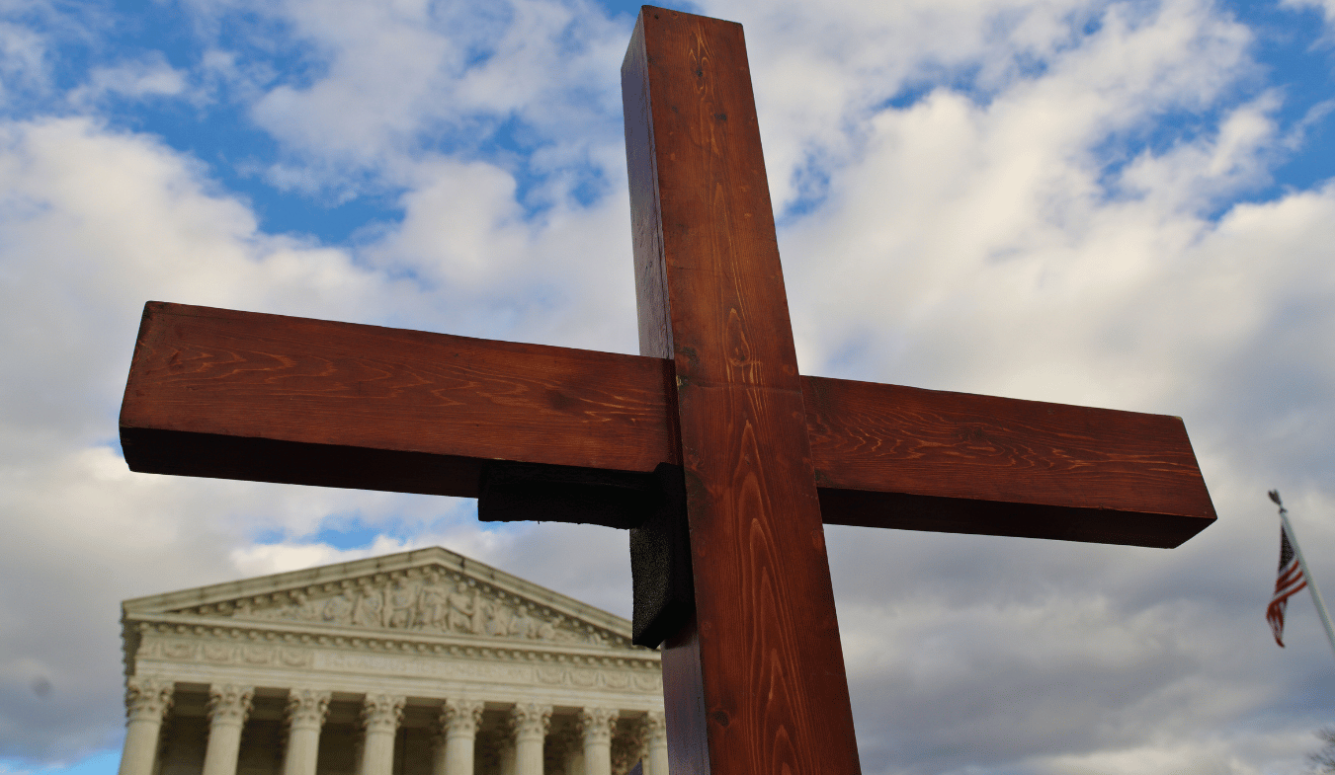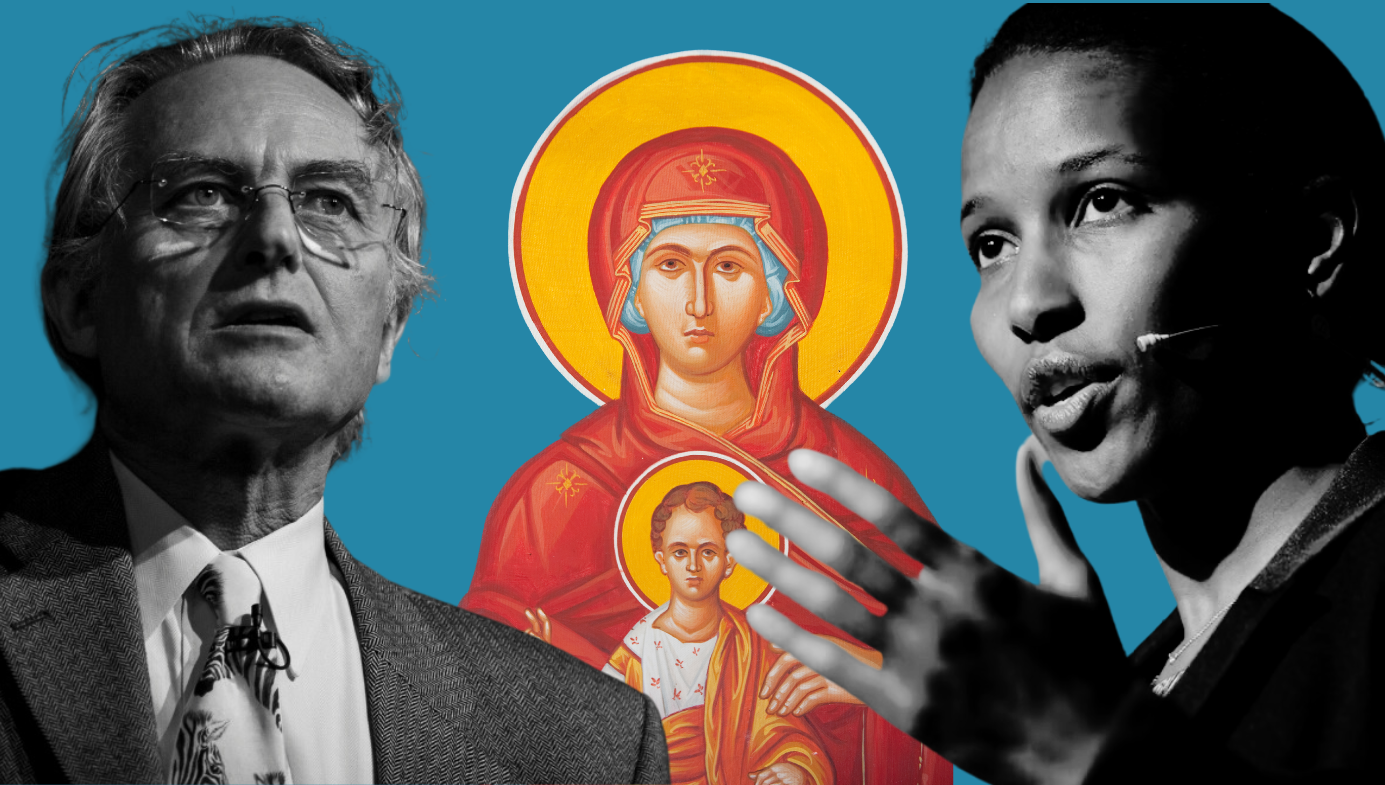Politics
Liberalism and the West’s ‘Crisis of Meaning’
Many liberals are strangely eager to concede that liberal societies are morally and spiritually bankrupt without religion to give life meaning.

I.
In a recent essay for the New York Times, David Brooks lamented what he sees as the deficiencies of liberalism. Unlike religion, which Brooks believes has long satisfied the need for meaning and purpose in human life, liberalism has proven incapable of filling the “hole in people’s souls.” Liberal societies, he writes, “can seem a little tepid and uninspiring.” Liberalism “nurtures the gentle bourgeois virtues like kindness and decency,” but not the “loftier virtues, like bravery, loyalty, piety and self-sacrificial love.” Although he considers himself a liberal, Brooks thinks liberal societies are lonely, atomised, and even selfish.
Brooks joins a growing list of public intellectuals who maintain that the principles and institutions of liberalism—democracy, freedom of speech and conscience, individual rights, and the rule of law—aren’t sufficient for societies to flourish. They believe society needs an anchor that goes deeper than liberalism—what Brooks describes as “faith, family, soil and flag.”
There are different expressions of this belief. In an article for the Spectator, journalist Ed West discusses a phenomenon he describes as “New Theism”—an intellectual movement pushing back against the rising secularism in Western liberal societies. In a recent essay for Quillette, the historian and author Adam Wakeling describes this phenomenon as “political Christianity,” which he defines as the belief that “Western civilisation has Christian foundations, and returning to those Christian roots can help protect Western values today.” Wakeling challenges both of these beliefs and argues that the “success of our civilisation rests on the pillars of Enlightenment thought: constitutional government, secularism, science, the rule of law, and human rights—not on belief in the supernatural or in any specific set of ancient myths.”

Wakeling makes a powerful historical case for the role of Enlightenment thought—which often explicitly resisted religious dogma and authority—in the development of Western morality and institutions. He also offers a compelling argument for why secular Enlightenment principles are a sturdier political foundation for diverse liberal societies than political Christianity. However, many New Theists and disaffected liberals have concerns that go beyond social and political organisation—they’re focused on what they view as a crisis of meaning in Western societies.
New Theists don’t just believe that the Judeo-Christian tradition is the cornerstone of Western civilisation, they also argue that secular liberalism leaves people bereft of community and a sense of meaning and purpose. New Theists like author and psychologist Jordan Peterson, conservative intellectual Douglas Murray, author and activist Ayaan Hirsi Ali, and historian Tom Holland all argue that the decline of Christianity will lead to nihilism, new forms of political tribalism, and a profound sense of spiritual emptiness in Western societies.
Liberals like Brooks are squeamish about this sort of cultural essentialism, so they make vague appeals to the need for “ultimate purpose,” “transcendent loyalties,” and the “most sacred cares of the heart and soul” without the stronger claim that a Judeo-Christian revival is necessary. Brooks shares the belief that something is missing from modern liberal society, even if it isn’t entirely clear what that thing is: “Many people find themselves spiritually unfulfilled,” Brooks writes, “they feel naked, embattled and alone.”
Brooks presents two versions of liberalism in his essay: one of these is “merely a set of neutral rules that allow diverse people to live together,” and the other is a “moral ethos … a guiding philosophy of life.” In his new book Liberalism as a Way of Life, Alexandre Lefebvre makes a case for the second version. While Brooks says the book gave him a “greater appreciation of liberalism’s strengths,” he also admits that it made him “more aware of why so many people around the world reject liberalism.” Lefebvre says his book is partly directed at the fastest-growing religious demographic in the United States and much of the West: the religiously unaffiliated. Like Brooks, he believes the decline of religion has left a spiritual vacuum, but he thinks liberalism is enough to fill it.
The New Theists, Brooks, and Lefebvre all agree that there’s a crisis of meaning in liberal societies. This view has become increasingly common as Western countries have gone through a period of rapid secularisation in recent decades. In 2000, 86 percent of Americans reported that they were Christian. Since then, the proportion has collapsed to 68 percent. Other indicators of religiosity have plummeted as well—while nearly two-thirds of Americans said religion was “very important” to them in 2003, 45 percent now say the same. Church membership was around 70 percent in 2000, but it’s now 45 percent. Since 2007, the proportion of Americans who say they’re atheists, agnostics, or “nothing in particular” jumped from 16 percent to 28 percent.
A similar trend is sweeping Western Europe, which has seen significant declines in Christian belief. In Belgium, 83 percent of respondents to a Pew survey say they were raised Christian, but just 55 percent remain Christian. Many other countries have followed a similar trajectory: 79 to 51 percent in Norway, 67 to 41 percent in the Netherlands, 92 to 66 percent in Spain, 74 to 52 percent in Sweden. Every Western European country Pew surveyed followed this trend.
New Theists argue that this shift has left a cultural and moral void that has been crammed with surrogate religions. For example, in a recent essay titled “Why I am now a Christian,” Hirsi Ali cites the old canard (often attributed to G.K. Chesterton): “When men choose not to believe in God, they do not thereafter believe in nothing, they then become capable of believing in anything.” She says the “nihilistic vacuum” created by the loss of faith has become a “civilisational” challenge. She claims that this vacuum has been “filled by a jumble of irrational quasi-religious dogma.”
Peterson, Murray, Holland, and other New Theists make similar arguments. Even Brooks believes the decline of traditional sources of meaning in liberal societies is one reason “authoritarianism is on the march.” He says citizens of these societies “grasp at politics to fill [a] moral and spiritual void.” He believes authoritarians are better at embracing “faith, family, soil and flag” than liberals. He concludes that “we have to celebrate liberalism while acknowledging its limits. … We need to be liberals in public but subscribe to transcendent loyalties in the depth of our being—to be Catholic, Jewish, stoic, environmentalist, Marxist or some other sacred and existential creed.”
New Theists believe traditional monotheistic religion is the only belief system that satisfies our need for meaning. In the absence of religion, Lefebvre says liberalism can serve this purpose. For Brooks, just about any fervently held belief besides liberalism will do. All these beliefs share the conviction that Western liberalism has been hollowed out by the decline of religious faith. They don’t just seek to fill the hole in their own souls with religion or some other existential doctrine—they assume that all their fellow citizens share their spiritual yearning.






